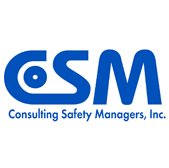What a Cup of Coffee Means in Safety
This post is not about spilling hot coffee in your lap. It’s about how relationships are important in safety. A close friend and safety professional, Wendell, taught me a valuable lesson early in my career that I would like to share.
Wendell had just hired me. He was introducing me to a client. The client offered us each a cup of coffee.
Eager to show off my safety stuff, I naively declined the coffee hoping to get out onto the plant floor and into action. Wendell put is hand on my elbow. He politely said, “Bryan, I would enjoy a cup of coffee. The plant can wait a few minutes.” It was a signal to me to hold it right there.
When we concluded the client visit and returned to the car, Wendell gave me feedback that will stay with me the rest of my days.
Wendell explained that safety is about relationships with people.
He explained that safety professionals need to build relationships with workers & operators, safety coordinators, supervisors, managers, corporate safety directors, union stewards, and executives. He further explained that the client’s gesture of offering a cup of coffee was an opportunity to build rapport, ask questions, and listen to the client’s story about their safety performance.
Wendell informed me that the cup of coffee was the other person connecting with us, beginning the working relationship. A relationship that we need to coach the client to better safety performance.
Wendell’s mentoring that day was a major shift in thinking for me.
To this day, I continue to genuinely accept gestures of coffee, tea, and even home made apple pie. I must have called Wendell 30 times over the last 20 years to say thanks for teaching me what a cup of coffee really means in safety.
Wendell recently retired. Something I learned watching Wendell over the years is that people skills make an effective safety professional. Competency credentials, such as CSP on the business card or an M.S. in Safety Management in the LinkedIn profile, are meaningless, if we cannot connect, listen, and communicate effectively with the people were are trying to serve in safety.
Wendell’s fantastic charisma and charm made people want to follow him. That made it easy for him to persuade others about implementing safety. He is an amazing teacher of adult learners who can connect with his audience. He applies common sense and can persuade the most stubborn worker. There was no loss problem Wendell couldn’t solve. His loss ratios and results often outperformed more technical safety professionals.
Wendell is a master of relationships. He can connect with people, the most important skill a safety professional can have. Passionate safety professionals who can connect with people have the greatest impact upon people’s safety.
Enjoy your retirement Wendell! Your style of safety made a difference in thousands of lives.


